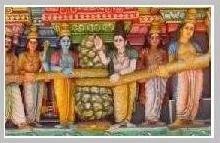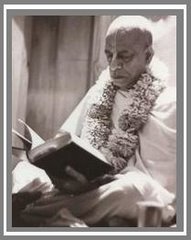Two weeks ago, Abe Moscowitz dropped dead of a heart attack and was reincarnated as a lobster. Trapped off the coast of Maine, he was shipped to Manhattan and dumped into a tank at a posh Upper East Side seafood restaurant. In the tank there were several other lobsters, one of whom recognized him. “Abe, is that you?” the creature asked, his antennae perking up.
“Who’s that? Who’s talking to me?” Moscowitz said, still dazed by the mystical slam-bang postmortem that had transmogrified him into a crustacean.
“It’s me, Moe Silverman,” the other lobster said.
“O.M.G.!” Moscowitz piped, recognizing the voice of an old gin-rummy colleague. “What’s going on?”
“We’re reborn,” Moe explained. “As a couple of two-pounders.”
“Lobsters? This is how I wind up after leading a just life? In a tank on Third Avenue?”
“The Lord works in strange ways,” Moe Silverman explained. “Take Phil Pinchuck. The man keeled over with an aneurysm, he’s now a hamster. All day, running at the stupid wheel. For years he was a Yale professor. My point is he’s gotten to like the wheel. He pedals and pedals, running nowhere, but he smiles.”
Moscowitz did not like his new condition at all. Why should a decent citizen like himself, a dentist, a mensch who deserved to relive life as a soaring eagle or ensconced in the lap of some sexy socialite getting his fur stroked, come back ignominiously as an entrée on a menu? It was his cruel fate to be delicious, to turn up as Today’s Special, along with a baked potato and dessert. This led to a discussion by the two lobsters of the mysteries of existence, of religion, and how capricious the universe was, when someone like Sol Drazin, a schlemiel they knew from the catering business, came back after a fatal stroke as a stud horse impregnating cute little thoroughbred fillies for high fees. Feeling sorry for himself and angry, Moscowitz swam about, unable to buy into Silverman’s Buddha-like resignation over the prospect of being served thermidor.
At that moment, who walked into the restaurant and sits down at a nearby table but Bernie Madoff. If Moscowitz had been bitter and agitated before, now he gasped as his tail started churning the water like an Evinrude.
“I don’t believe this,” he said, pressing his little black peepers to the glass walls. “That goniff who should be doing time, chopping rocks, making license plates, somehow slipped out of his apartment confinement and he’s treating himself to a shore dinner.”
“Clock the ice on his immortal beloved,” Moe observed, scanning Mrs. M.’s rings and bracelets.
Moscowitz fought back his acid reflux, a condition that had followed him from his former life. “He’s the reason I’m here,” he said, riled to a fever pitch.
“Tell me about it,” Moe Silverman said. “I played golf with the man in Florida, which incidentally he’ll move the ball with his foot if you’re not watching.”
“Each month I got a st
 atement from him,” Moscowitz ranted. “I knew such numbers looked too good to be kosher, and when I joked to him how it sounded like a Ponzi scheme he choked on his kugel. I had to do the Heimlich maneuver. Finally, after all that high living, it comes out he was a fraud and my net worth was bupkes. P.S., I had a myocardial infarction that registered at the oceanography lab in Tokyo.”
atement from him,” Moscowitz ranted. “I knew such numbers looked too good to be kosher, and when I joked to him how it sounded like a Ponzi scheme he choked on his kugel. I had to do the Heimlich maneuver. Finally, after all that high living, it comes out he was a fraud and my net worth was bupkes. P.S., I had a myocardial infarction that registered at the oceanography lab in Tokyo.”“With me he played it coy,” Silverman said, instinctively frisking his carapace for a Xanax. “He told me at first he had no room for another investor. The more he put me off, the more I wanted in. I had him to dinner, and because he liked Rosalee’s blintzes he promised me the next opening would be mine. The day I found out he could handle my account I was so thrilled I cut my wife’s head out of our wedding photo and put his in. When I learned I was broke, I committed suicide by jumping off the roof of our golf club in Palm Beach. I had to wait half an hour to jump, I was twelfth in line.”
At this moment, the captain escorted Madoff to the lobster tank, where the unctuous sharpie analyzed the assorted saltwater candidates for potential succulence and pointed to Moscowitz and Silverman. An obliging smile played on the captain’s face as he summoned a waiter to extract the pair from the tank.
“This is the last straw!” Moscowitz cried, bracing himself for the consummate outrage. “To swindle me out of my life’s savings and then to nosh me in butter sauce! What kind of universe is this?”
Moscowitz and Silverman, their ire reaching cosmic dimensions, rocked the tank to and fro until it toppled off its table, smashing its glass walls and flooding the hexagonal-tile floor. Heads turned as the alarmed captain looked on in stunned disbelief. Bent on vengeance, the two lobsters scuttled swiftly after Madoff. They reached his table in an instant, and Silverman went for his ankle. Moscowitz, summoning the strength of a madman, leaped from the floor and with one giant pincer took firm hold of Madoff’s nose. Screaming with pain, the gray-haired con artist hopped from the chair as Silverman strangled his instep with both claws. Patrons could not believe their eyes as they recognized Madoff, and began to cheer the lobsters.
“This is for the widows and charities!” yelled Moscowitz. “Thanks to you, Hatikvah Hospital is now a skating rink!”
Madoff, unable to free himself from the two Atlantic denizens, bolted from the restaurant and fled yelping into traffic. When Moscowitz tightened his viselike grip on his septum and Silverman tore through his shoe, they persuaded the oily scammer to plead guilty and apologize for his monumental hustle.
By the end of the day, Madoff was in Lenox Hill Hospital, awash in welts and abrasions. The two renegade main courses, their rage slaked, had just enough strength left to flop away into the cold, deep waters of Sheepshead Bay, where, if I’m not mistaken, Moscowitz lives to this day with Yetta Belkin, whom he recognized from shopping at Fairway. In life she had always resembled a flounder, and after her fatal plane crash she came back as one.































